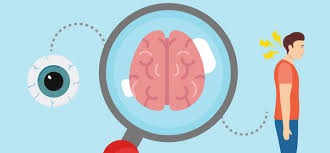Signs that lung cancer is progressing
Lung cancer is cancer that starts in the lungs. The lungs are a pair of organs in the chest that are in charge of breathing.
Lung cancer is classified into two types: small-cell lung cancer (SCLC) and non-small cell lung cancer (NSCLC) (NSCLC). SCLC is the least frequent kind of lung cancer, accounting for around 15% of all occurrences. NSCLC is the most frequent form, accounting for around 85% of all cases.
Lung cancer often begins as a tiny tumor that increases gradually over time. In most instances, cancer is discovered after it has spread to other regions of the body. As a result, lung cancer is often difficult to cure and may be deadly.
In this article, we will look at the probable symptoms of lung cancer progression.
Lung cancer is one of the worst types of cancer, and it often spreads swiftly. Here are eleven indicators that lung cancer is spreading:
1. Shortness of breath
One of the first and most prevalent signs of lung cancer is shortness of breath. It happens when malignant tumors grow big enough to impede airflow through the lungs. Breathing difficulties, chest discomfort, and coughing may result from the blockage. In certain circumstances, the tumor may push on nerves, producing chest or back discomfort.
In the United States, lung cancer is the largest cause of cancer mortality, and smoking is the primary cause of the illness. Cigarette smoking is responsible for 80% to 90% of lung cancer fatalities. Exposure to radon and toxic chemicals are other risk factors for lung cancer.
If you have shortness of breath, you should consult a doctor to get a diagnosis. Because lung cancer is curable if detected early, early diagnosis is critical.
2. A persistent cough
One of the most typical indicators that lung cancer is growing is a persistent cough. A cough that persists beyond a few weeks or is accompanied by other symptoms such as wheezing, shortness of breath, or coughing up blood might be an indication that lung cancer has grown to a more advanced stage.
3. Chest infections
Chest infections come in various forms, but the two most prevalent are bronchitis and pneumonia. Both of these illnesses are often caused by viruses, while bacteria may sometimes cause pneumonia. Chest infections are often caused by an infected person coughing or sneezing.
Lung cancer is a dangerous disease that may spread swiftly. Chest infections are one of the warning indicators that lung cancer is spreading. These infections are very dangerous and, if left untreated, may result in death.
Antibiotics are often used to treat chest infections, however, antifungal drugs may be required in rare circumstances. If you have a chest infection, you should visit a doctor as soon as possible so that you can get the proper treatment.
4. Unexplained weight loss
Loss of weight is a typical sign of lung cancer. While it may be caused by a variety of circumstances, unexplained weight loss is often a symptom that cancer is spreading.
Depending on the kind and stage of the illness, there are many therapy options for lung cancer. However, new medicines are constantly being created and researched in an attempt to improve outcomes for those suffering from this condition.
If you have unexplained weight loss, see your doctor so that they can rule out other possible reasons and identify the best course of therapy for you.
5. Fatigue or weakness
Lung cancer is a deadly illness that may be fatal. It is critical to recognize the signs and symptoms of lung cancer in order to get treatment as soon as feasible.
Fatigue or weakness is a typical symptom of lung cancer. This might be due to cancer or the therapies used to treat it. Fatigue may be incapacitating, making it difficult to perform daily tasks.
If you are feeling tiredness or weakness, it is critical that you contact your doctor so that other possible reasons may be ruled out and treatment for lung cancer can begin. Many patients with lung cancer may live long and healthy lives if it is detected and treated early.
Wrapping It Up
Lung cancer is a potentially fatal illness characterized by the uncontrolled proliferation of abnormal cells in the lungs. Lung cancer, if left untreated, may spread to other regions of the body and create major health consequences. Early detection and treatment of lung cancer are critical for the best prognosis.
Lung cancer treatment options include surgery, chemotherapy, radiation therapy, and targeted therapy. The best treatment approach is determined by the kind and stage of the lung cancer. A mix of therapies may be advised in certain circumstances.
Preventing lung cancer is an essential public health intervention. Quitting smoking and avoiding toxins and radon gas are both excellent methods to lower your chance of getting lung cancer. Screening for lung cancer early may also save lives by allowing for rapid treatment.




Comments
Post a Comment